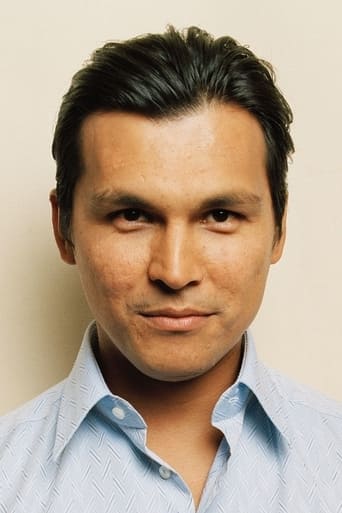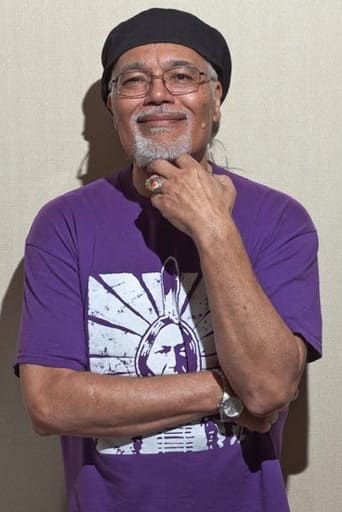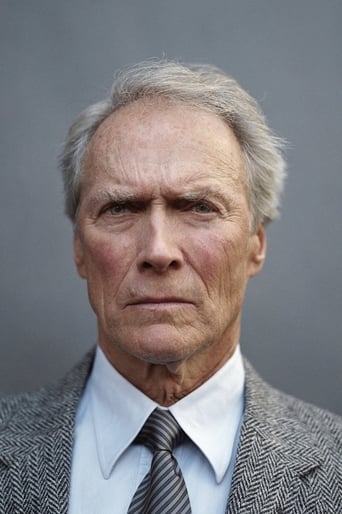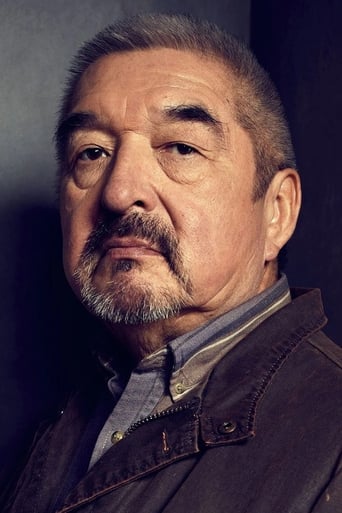BootDigest
Such a frustrating disappointment
Moustroll
Good movie but grossly overrated
Curt
Watching it is like watching the spectacle of a class clown at their best: you laugh at their jokes, instigate their defiance, and "ooooh" when they get in trouble.
poe426
REEL INJUN does Injustice justice: we see early examples of White Men in Blackface, in Black and White- and then White Men in Redface, in Color(ed?)... I always get a big kick out of seeing actors who clearly AREN'T "American Indians" (which is an oxymoron) pompously spouting ridiculous dialogue. The translations shown in REEL INJUN are hilarious. I never knew that "Iron Eyes" Cody was Sicilian; a bit of a revelation, that. That he took the Part to Heart was touching: you can be who- or what- you WANT to be in this life. The juxtaposition of Reel Injuns with Real World Injuns brought the mixed message(s) home quite clearly (one can't look at the horrific photos of the original Massacre at Wounded Knee and NOT understand the dichotomous yawning chasm between Reality and Reel "reality"). My favorite line in the movie was delivered by the young comic: A group of White Men ride up to an "American Indian" and say, "Where road go?" The "Amerind" replies: "Road STAY. YOU go." I heard somewhere that The Emancipation proclamation, which freed slaves of African descent, didn't apply to Native Americans: it was still legal to own Indian slaves...
jltaylor175
I learned a TON from this film. I started watching it thinking I had a good handle on just how terrible Hollywood has been to the cause of First Nations education, but I was wrong. From the revelation of a SURPRISING number of Hollywood actors who are still alive and have played First Nations peoples in their careers to the surprisingly obvious (how did I not realize this?!) fact that nearly all portrayals of First Nations Peoples on film are of the Plains People - feathered war bonnets and all!There is truly so much that is positive that I could say about this film, but the most important of which is the fact that it has been funded, produced and released to the wider public at TIFF and various other means (I myself watched it on television, yaay!) and it is largely the work of First Nations artists and community. I hope that funding continues so that further quality works like this can be released!Truly a revelation!
Turtle Heart
I am an Ojibwe American Indian. In the first place, including Rusell Means in this film proves how absolutely uninformed the film maker really is. Means has been universally discredited as a gangster and killer by the broad American Indian community...there could be no more offensive presence in a film about American Indians. Otherwise the film is a terribly overworked cliché of itself and shows serious problems that are designed to fit the writer's agenda but does not tell an accurate story. There is so little good and correct information available on American Indians that many film-makers, including this one, just make things up. Modern people often feel so guilty and sympathetic, if they feel anything at all, about the American Indian, that a film like this will get good reviews just because it confirms the paranoid tendencies of the new world order. Had the improperly focused writer and film-maker chosen to tell a more positive and honest story, this film could have had some value. As it is, it tells a somewhat true story in such a paranoid and selective way that it, too, has become another part of the problem.
GeneralYo
I was really looking forward to seeing this documentary. In fairness, it does live up to its promise to expose the "Hollywood Indian" as a fabrication. But seriously, who didn't already know that - at least to some degree? What Reel Injun fails to do is offer any substantial new insight into the reality of Aboriginal cultures. There's so much rich diversity, and yet we learn next to nothing about any particular group. There's a place in the documentary where the point is made that relatively few Americans actually know an Aboriginal person. It's unfortunate that Reel Injun doesn't do much to help in that regard. Maybe I was expecting too much from an 86 minute doc. Hopefully there will be a follow up to Reel Injun that focuses more on who Aboriginal people are, as opposed to what they are not.






